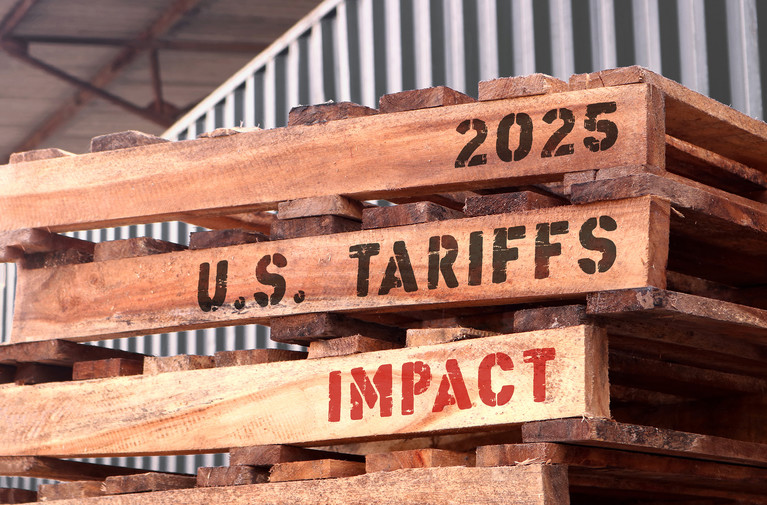Texas Companies and Gaming Association Sue Trump Over Tariff Imposition
By [Your Name], July 24, 2025
AUSTIN, TX — The Game Manufacturers Association (GAMA), alongside Texas-based companies FIREDISC and Ryan Wholesale, has filed a lawsuit against President Donald Trump and his administration, challenging the legality of sweeping tariffs imposed on imports from China, Canada, and Italy. Filed on July 21, 2025, in the U.S. District Court for the Western District of Texas, the lawsuit argues that Trump’s use of emergency powers to enact these tariffs is an unconstitutional overreach, threatening tens of thousands of jobs in the tabletop gaming industry and beyond.
An “Existential Crisis” for Tabletop Gaming
The lawsuit, FIREDISC, Inc; The Game Manufacturers Association; and Ryan Wholesale, Inc v. President Donald J. Trump et al., targets tariffs imposed under the International Emergency Economic Powers Act (IEEPA), which Trump invoked to address alleged national emergencies related to trade imbalances, illegal immigration, and drug trafficking. GAMA, representing the tabletop gaming industry, describes the tariffs—particularly the 145% levy on Chinese imports—as an “existential crisis.” With nearly 70% of board games manufactured in China, the tariffs have already forced companies like Final Frontier Games and Greater Than Games to announce layoffs and closures.
GAMA’s executive director, John Stacy, stated, “If the tariffs continue indefinitely, our industry will cease to exist in its current form.” The trade group estimates that tens of thousands of jobs, from small publishers to retailers, are at risk. The lawsuit highlights the broader economic impact, noting that 74 game publishers have already paid $206,000 in tariffs, with projected costs exceeding $11 million if the 145% rate persists.
Texas Companies Take a Stand
FIREDISC, an outdoor cookware manufacturer based in Katy, Texas, and Ryan Wholesale, a timber supplier, joined GAMA in the suit, arguing that the tariffs disrupt supply chains and inflate costs across multiple sectors. The complaint, filed by the New Civil Liberties Alliance (NCLA), asserts that Trump “unlawfully bypassed Congress” by using IEEPA, which does not explicitly authorize tariffs. “No prior administration in the nearly 50-year history of the IEEPA thought it empowered the president to impose tariffs unilaterally,” said NCLA president Mark Chenoweth.
The lawsuit emphasizes the systemic harm to industries reliant on imports, with FIREDISC and Ryan Wholesale facing significant cost increases for materials sourced from China and other targeted countries. Unlike an earlier lawsuit supported by GAMA, which focused narrowly on a single company’s supply chain issues, this case takes a “sledgehammer” approach, addressing widespread economic damage across multiple sectors and countries.
Legal and Economic Backdrop
Trump’s tariffs, announced on April 2 as part of his “Liberation Day” policy, include a 10% baseline on most global imports, with higher rates for countries like China (145%), Vietnam (46%), and India (26%). A temporary reduction to 30% on Chinese imports was granted in May for 90 days, with a deadline now extended to August 12, 2025. The administration claims the tariffs address trade imbalances and incentivize U.S. manufacturing, but critics argue they harm small businesses and consumers by raising prices.
The tabletop gaming industry, heavily reliant on China for precision manufacturing of components like custom dice and wooden tokens, faces unique challenges. Alex Wolf of Spielcraft Games in Omaha, a plaintiff in a related lawsuit, noted that his game Cretaceous Rails saw production costs rise from $20 to $50 per unit due to tariffs. “The infrastructure to support full-scale board game production doesn’t meaningfully exist here yet,” said Meredith Placko of Steve Jackson Games, highlighting the impracticality of shifting to U.S. manufacturing.
Broader Resistance and Public Sentiment
This lawsuit joins a wave of legal challenges against Trump’s tariffs, including suits by 12 states, led by Oregon, and other small businesses like Stonemaier Games, which estimates $1.5 million in tariff costs. On May 28, the U.S. Court of International Trade blocked the tariffs, citing Congress’s exclusive authority over trade, though an appeals court temporarily reinstated them pending further review. California’s lawsuit, filed by Governor Gavin Newsom, argues that the tariffs have caused “hundreds of billions of dollars in economic losses” to the state’s agriculture and manufacturing sectors.
Public sentiment on X reflects the gaming community’s alarm, with posts from @TexasLawyer and @lawdotcom amplifying news of the lawsuit. Board game enthusiasts on Reddit’s r/boardgames, a 5.4-million-member community, have urged preemptive purchases, fearing industry collapse. “I just wanted to say good luck,” one commenter wrote, echoing widespread support for the legal fight.
What’s at Stake
The lawsuit seeks to declare the tariffs void and enjoin their enforcement, arguing that IEEPA does not grant the president tariff authority and that the declared “emergencies” do not meet the legal threshold. A victory could protect small businesses and preserve the tabletop gaming industry’s viability, while a loss could force price hikes, reduced game quality, or widespread closures. “This is not making American workers better; it is killing American small businesses,” said Nathan McNair of Pandasaurus Games in Austin.
As the August 12 deadline approaches, the outcome of this and related lawsuits will shape the future of industries reliant on global supply chains. For now, Texas companies and GAMA are standing firm, hoping to safeguard jobs and a beloved hobby from what they call an unlawful economic gamble.
Sources: BoardGameWire, The Verge, Pacific Legal Foundation, The New York Times, X posts
